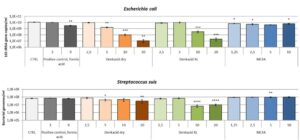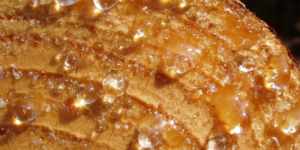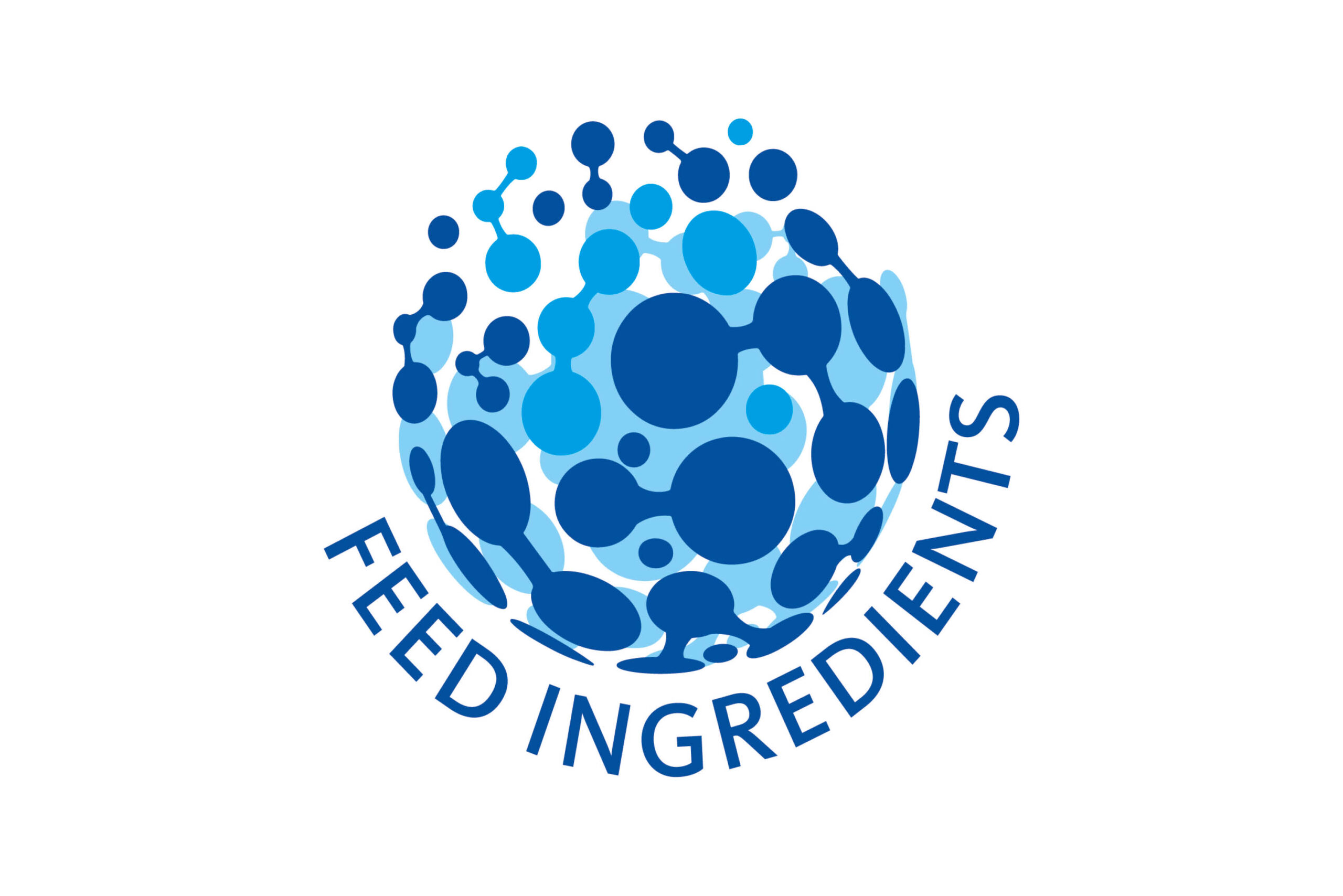Denkacid XL: intestinal health support for weaned piglets
A newly-weaned piglet is unable to produce enough acid to sufficiently lower the pH in its stomach. However, a low pH is necessary for effective protein digestion. If newly-weaned piglets are fed a standard weaner feed without additional acidification, proteins are often not optimally digested and absorbed. This undigested protein can then serve as a substrate (food) for unfavourable bacteria, such as S. suis, in the intestine with all the resulting negative consequences.
To support protein pre-digestion in the stomach, organic acids such as citric or fumaric acid are often included in weaner feeds. These acids can give off H+ even in an acidic environment, such as the stomach with+, such as the stomach that has a pH of about 4, which leads to further acidification of the environment. The ideal pH in the stomach of a weaned piglet is less than 4. Organic acids, such as citric and fumaric acid, thus support protein digestion and reduce the risk of too much substrate being available for pathogens further down the pig’s intestinal tract.
Further to this Denkacid XL has been developed. Denkacid XL is a mixture of salts and medium-chain fatty acids but it is not an acidifier as the name suggests. So why call it Denkacid XL?
Calcium salts
Denkacid XL consists largely of calcium formate, calcium acetate and calcium propionate. These are salts of formic acid, acetic acid and propionic acid respectively. As soon as these salts enter the stomach with their low pH (due to the animal’s stomach acid and organic acids from the feed), the calcium salt is broken down and an H+ takes the place of the calcium. Thus, an acid is formed from each of these salts within the stomach. These three acids are very small and water-soluble. They can effectively inhibit gram-negative pathogens such as E.coli from multiplying (see figure 1).
Another major advantage of this specific acid combination is that you supply readily available calcium that is much less of a buffer than the standard calcium source, chalk. This allows stomach acid to work more effectively and it enhances protein digestion.

MCFA’s
In addition to calcium salts, Denkacid XL also contains medium-chain fatty acids. These are fatty acids with 12-14 carbon atoms. They have a proven inhibiting effect on the multiplication of gram-positive pathogens such as the well-known S.suis (see figure 1). The disadvantage of these fatty acids is that they are not palatable and therefore inhibit feed intake. In Denkacid XL, these fatty acids are specially encapsulated so they are gradually released during digestion and do not negatively influence the taste of the feed. After all, a constant feed intake after weaning is crucial!
Summary
Denkacid XL is a mixture of salts and fatty acids, optimally formulated and produced to support the digestion of newly-weaned piglets. In addition to being a good source of calcium, it inhibits the multiplication of both gram-negative and gram-positive pathogens which benefits both the growth and health of the piglet.







